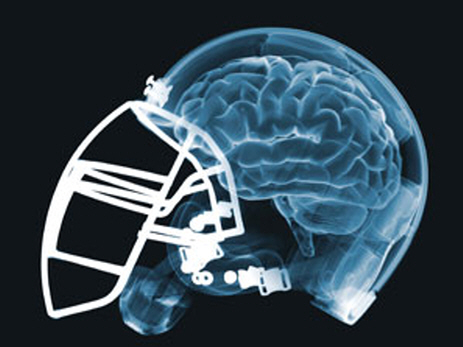Concussion Myths

More than one million concussions are reported among athletes of all skill levels in the United States each year. What players used to be told to “shake off and get back in the game” is now classified as a type of brain injury.
Concussions are caused by a bump, blow, or jolt to the head, or from a fall or blow to the body, causing the head and brain to move quickly back and forth.
Although not typically life-threatening, the effects can be serious and it’s important to know what’s fact and what’s fiction when treating a concussion.
Myth: Symptoms of concussions appear right away.
Symptoms often appear right away, but sometimes you may not notice symptoms for days or weeks after the injury. Even if you feel fine, it’s important to immediately acknowledge a particularly hard bump or blow to the head. It’s also important to recognize the symptoms of a concussion in case you start to experience them later.
Signs and symptoms of a concussion may include:
- Headache or a feeling of pressure in the head
- Temporary loss of consciousness
- Confusion or feeling as if in a fog
- Amnesia surrounding the traumatic event
- Dizziness or “seeing stars”
- Ringing in the ears
- Nausea
- Vomiting
- Slurred speech
- Delayed response to questions
- Appearing dazed
- Fatigue
Some symptoms of concussions that may be delayed in onset by hours or days after injury include:
- Concentration and memory complaints
- Irritability and other personality changes
- Sensitivity to light and noise
- Sleep disturbances
- Psychological adjustment problems and depression
- Disorders of taste and smell
(Source: Mayo Clinic)
Myth: Don’t let a person with a concussion fall asleep for several hours after the injury.
The American Academy of Family Physicians states that it’s not necessary to keep a person awake after a concussion. Initially after the injury, your physician may want someone to wake you every two hours to ensure your symptoms aren’t worsening, but rest is the best treatment. In the likely case of a headache, you will want sleep, and a quiet environment will help your mind heal.
Myth: You can’t get a concussion if you are wearing a helmet.
A helmet can help protect you or your child from a serious injury, but it’s not a guarantee. According to the Centers for Disease Control, (http://www.cdc.gov/concussion/HeadsUp/index.html), a helmet should fit properly and be:
- Well maintained.
- Age appropriate.
- Worn consistently and correctly.
- Appropriately certified for use.
To learn about concussion care at Baptist, visit the Baptist & Semmes-Murphey Concussion Center, the only multidisciplinary concussion center in the Mid-South, or find a doctor by visiting our Find a Physician page.
